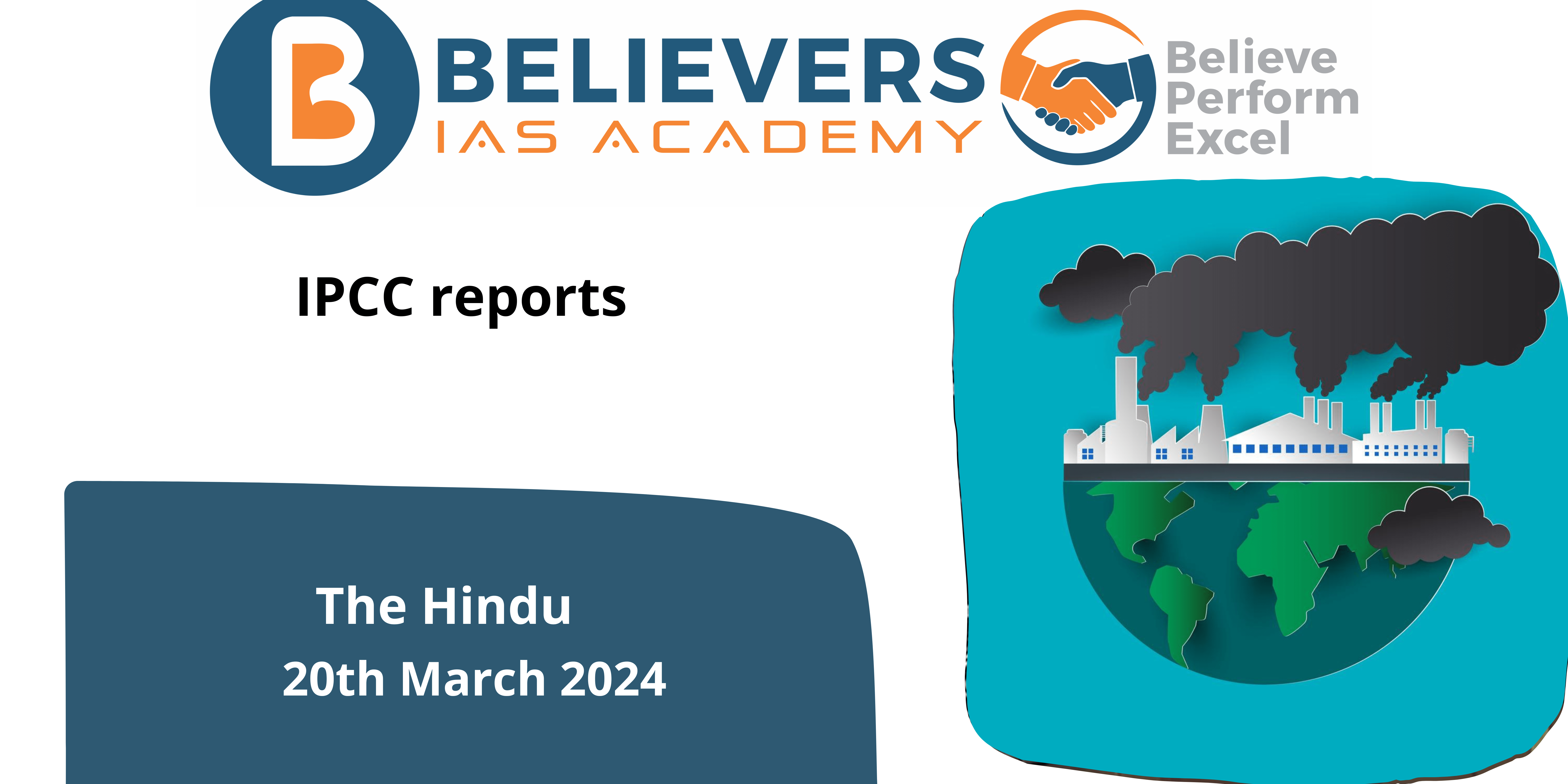IPCC reports
Context:
A recent study by the UN Intergovernmental Panel on Climate Change (IPCC) has examined more than 500 future emissions scenarios which reveals disparities within the anticipated routes of climate action outlined in the IPCC reports.
Relevance:
GS-01, GS-03 (Environment pollution and degradation, Conservation, Climate change)
IPCC:
- The IPCC, or Intergovernmental Panel on Climate Change, is a scientific organization established by the United Nations. Its mission is to offer an impartial, scientific perspective on climate change and its ramifications on global politics and economics.
- It was first established in 1988 by the World Meteorological Organization and the United Nations Environment Programme and later endorsed by the United Nations General Assembly.
- Membership of the IPCC is open to all members of the WMO and the UNEP.
- The IPCC generates reports in alignment with the United Nations Framework Convention on Climate Change (UNFCCC)- which is the primary international agreement concerning climate change.
- The primary goal of the UNFCCC is to stabilize greenhouse gas concentrations in the atmosphere to mitigate harmful human-induced effects on the climate system.
Key Findings of the New Study:
- Economic Disparities: The analysis of 556 scenarios in the IPCC’s AR6 report reveals troubling projections for 2050. It indicates that regions covering 60% of the world’s population (including parts of Sub-Saharan Africa and South, West, and East Asia and excluding China) will still have below-average per-capita GDP.
- Consumption Disparities: Disparities in the consumption of goods, energy, and fossil fuels persist between the Global North and South, exacerbating existing economic inequalities.
- Burden on Developing Nations: Developing nations are projected to bear a heavier burden in terms of carbon sequestration and Carbon Capture and Storage (CCS) technologies.
- Critique of Scenarios: Researchers criticize the scenarios for neglecting the historical responsibility of wealthier nations and failing to address the energy needs of the Global South to achieve development goals, underscoring significant inequities within projected climate action pathways.
Facts for Prelims:
- IPCC has had six assessment cycles and has released six Assessment Reports.
- IPCC is currently in its Seventh Assessment cycle.
- IPCC recommends that countries should strive for net-zero emissions by 2050 and also to cut down on any new coal plants and fossil fuel exploration.




